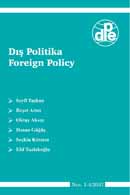Inclusion of The Migrants: Nationalism Versus Constitutional Patriotism
Inclusion of The Migrants: Nationalism Versus Constitutional Patriotism
Author(s): Elif TuzlakogluSubject(s): Politics / Political Sciences
Published by: Dış Politika Enstitüsü
Summary/Abstract: This paper endeavors to discuss the possible methods to provide the inclusion of the migrants and to reinterpret them as a legal category. The analysis starts with the assumption that the nation states are the main reference points in creating the identities. Despite several steps towards supra-nationalization, nation state is still far away from losing its power. Hence the possible methods on including the migrants should be assessed by taking into consideration the notion of nation state. Second assumption is that the notion of nation state has been constructed by the ideology of nationalism. Hence the hypotheses of modernist authors like Ernest Gellner, Eric J. Hobsbawm and Benedict Anderson, whom specialized on nationalism, are given to predicate our assumption on stronger grounds. The ideology of nationalism oversees the existence of different identities. The research question of this paper has been developed at this point. The paper seeks to find out whether the constitutional patriotism can complete the gap that the nationalism left on the grounds of including the migrants. Nationalist discourse tries to create a unity by abolishing the existence of different identities in a given society, whereas constitutional patriotism seeks to recognize the divergent identities and create the discourse of common values of personhood which are to be protected by a constitution. After the discussion of the constitutional patriotism based upon Habermassian conceptualization, an emphasis on postnational model is made because the constitutional patriotism and the postnational model are interconnected. The hypotheses and assumptions of each ideology are given and it is discussed whether they can present a valid model for the recognition of the migrants as a different category rather than absorbing them in the society. In other words it is tried to find out whether the universalistic- liberal categories, introduced by postnational model and constitutional patriotism, suffice to transcend the protonational links that the nationalist ideology creates. Shortly, the analysis is based upon the controversy between nationalism and constitutional\patriotism or between the protonationalism and postnationalism. The legal steps upon creating a common European identity are also included and discussed in that analysis.
Journal: Dış Politika
- Issue Year: 2007
- Issue No: 1-4
- Page Range: 81-112
- Page Count: 32
- Language: English

